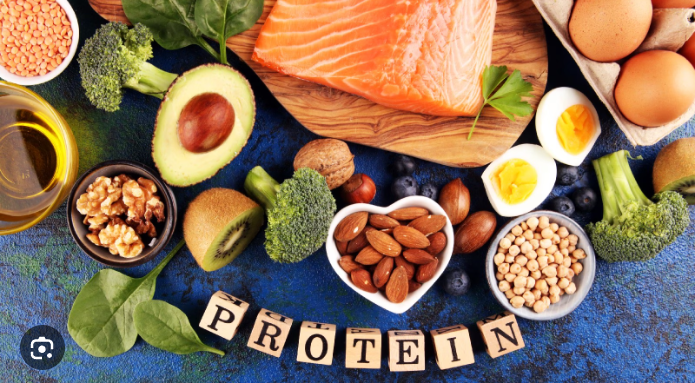The key to boosting your nutrition and energy levels is to eat more high-protein foods. This article includes a selection of outstanding choices that can improve your diet and help you feel fuller for longer.
Protein for health
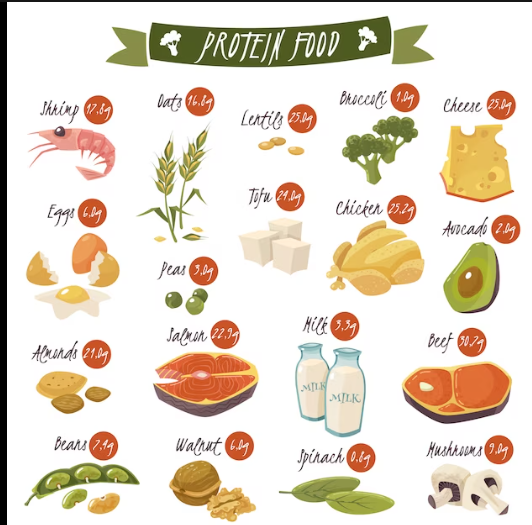
Also read-High Fiber Foods You Should Include In Your Diet
Nutritional research has advanced during the last few decades. The optimal diets were traditionally believed to be low-fat and heavy in carbohydrates. However, diets that prioritize higher protein intake have lately become more popular as a strategy for losing weight and generally improving health and fitness.
What is protein, though, and why is it so crucial?
According to Samantha Snashall, a staff dietitian at Columbus’ Ohio State University Wexner Medical Center, protein is a complex molecule that supports the structure and operation of cells and tissues in the body, including assisting in the regular growth and repair of muscles, hair, and nails.
How much protein per day should you eat?
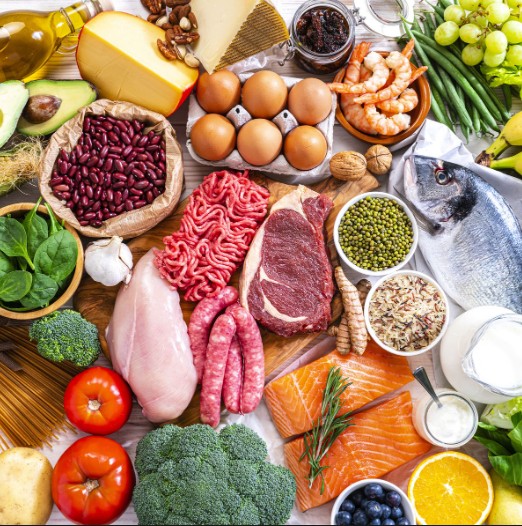
According to Sara Riehm, a registered dietitian and certified specialist in obesity and weight management with Orlando Health in Florida, an adequate protein intake ensures that the components of our body and its systems continue to operate at their peak levels. So, how much is sufficient?
In the United States, 0.8 grams of protein per kilogram of body weight should be consumed per day. Therefore, a 165-pound adult would require roughly 60 grams of protein per day.
High-protein breakfast food: Eggs
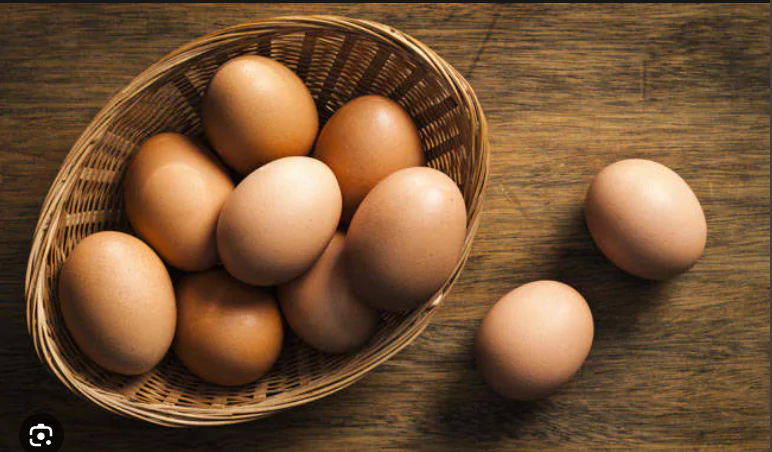
Without having to rely on meat items in the morning, eggs are a fantastic method to increase protein consumption. When I don’t consume seafood, Cesar Sauza, a registered dietician at Alta Med Health Services in Los Angeles, says, “I look to non-meat, animal-based proteins, like cage-free eggs. “The amount of protein in one large hard-boiled egg is 6 grams.
High-protein breakfast food: Dairy products
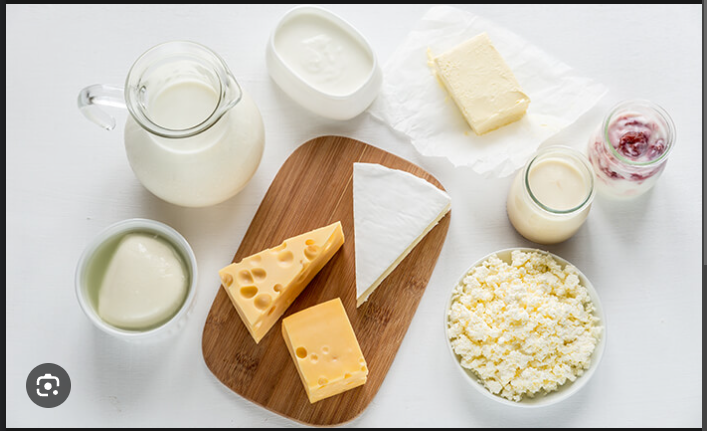
Greek yogurt and kefir are high-protein foods that also benefit the gut by being fermented and containing microorganisms. Probiotics are intestinal microorganisms that have a positive impact on a variety of health issues. According to Kailey Proctor, a board-certified cancer nutritionist at City of Hope in Southern California, “Greek yogurt has almost twice the protein as regular yogurt.” “It’s high in calcium and is often fortified with vitamin D, so it’s a great option for keeping bones strong.”
High-protein lunch and dinner food: Lean meats
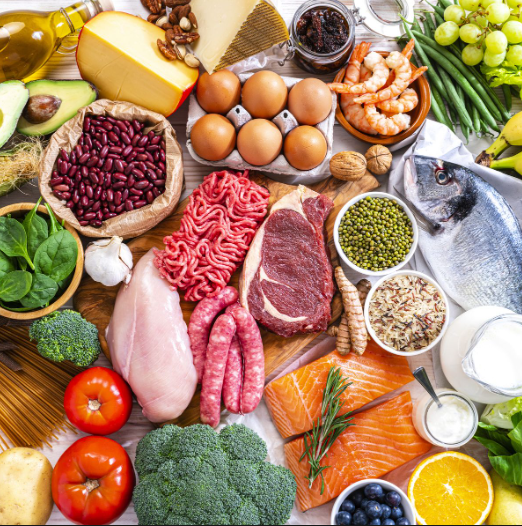
When striving to increase their protein consumption, most people frequently think of meat as their first choice of meal. Lean meats, such as chicken breast, turkey, and lean beef, are among the best types of meat. These have almost no carbs, little fat, and a lot of protein. 54 grams of protein can be found in a skinless, roasted chicken breast that weighs about 172 grams. The amount of protein in a 3-ounce meal of skinless turkey breast is roughly 25 grams. Beef that is 90% lean and 10% fat has 18 grams of protein per 100 grams.
High-protein lunch and dinner food: Legumes
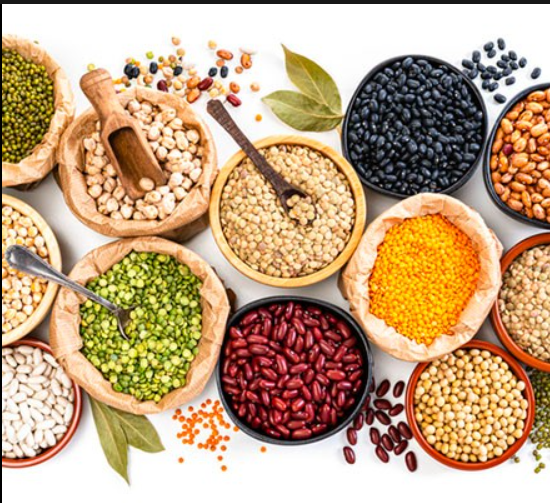
Excellent sources of protein include lentils, beans, and other legumes like peas. Legumes are “my personal go-to protein foods,” according to Souffront. They are abundant in fiber, minerals, vitamins, antioxidants, and resistant starch, in addition to being high in protein. Like fiber, resistant starch is a form of carbohydrate that is challenging to digest and can prolong your feeling of fullness. A 2022 study in the Journal of Functional Foods found that it can also raise blood sugar levels and insulin sensitivity, which can aid in lowering the risk of developing type 2 diabetes.
High-protein snack: Nuts
Nuts are a fatty food high in protein with a delicious crunch that can be a healthy addition to your diet. Some excellent options include:
- Almonds.
- Peanuts.
- Pistachios.
- Walnuts.
- Cashews.
Almonds in particular are a good choice, Proctor says. A 1-ounce serving (or ¼ cup) of almonds has 6 grams of protein.
Words of warning
Your diet can help you obtain the nutrients you need, help you develop muscle, lose weight, and generally help you feel better by including healthy, high-protein meals. Snashall cautions, however, that “there is such a thing as too much protein.” For instance, consuming too much protein might alter bowel habits, most frequently resulting in constipation.
Top high-protein foods
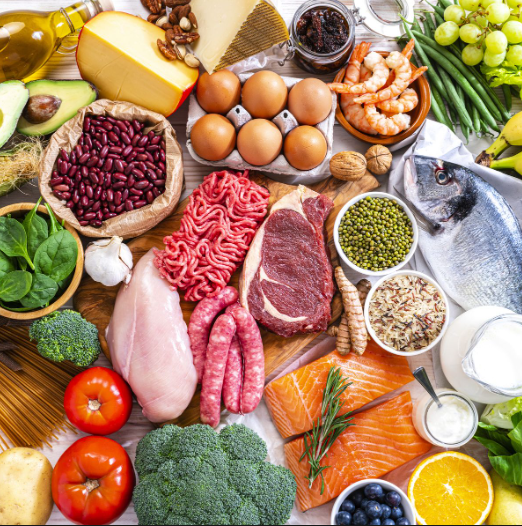
- Eggs.
- Dairy products, such as Greek yogurt, kefir, and cottage cheese.
- Lean meats, such as chicken breast and thighs, turkey, lean beef, duck, and quail,
- Fish and seafood, including tuna, shrimp, and salmon,
- Legumes and other beans, such as soybeans, lentils, white beans, split peas, kidney beans, black beans, lima beans, and chickpeas
- Seeds, including hemp seeds, chia seeds, pepitas, and quinoa.
- Nuts, such as almonds, peanuts, pistachios, walnuts, and cashews
Also read-Excellent Hydration Options With Electrolyte Drinks
Images source: Google







